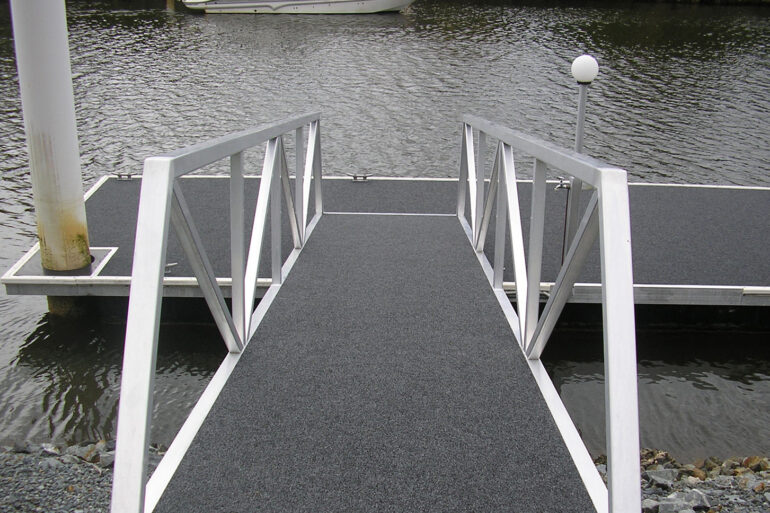
Just like a boat, jet ski or personal watercraft, a pontoon is also an investment. And like all investments, they need to be maintained to hold their value and to withstand the test of time.
If you’re weighing up the pros and cons in forking out money to have your pontoon and its floating dock regularly maintained, then consider the following benefits a well-maintained dock has to.
Table of Contents
Achieve longevity from your dock
Let’s face it, a pontoon doesn’t come cheap. Therefore, you will want to ensure that you achieve longevity from your not just the floating dock, but the entire pontoon. Regular floating dock maintenance will expand the lifespan of your pontoon.
It is hard to put a timeframe on the lifespan of a pontoon as there are many variables to consider including the manufacturer, the installed location and the elements it is exposed to at that location, the maintenance that is carried out on the pontoon during its lifetime, the load that is placed on the pontoon (e.g. the size of vessel moored, etc.) However, a well-built pontoon installed in a calm water system with regular maintenance should last approximately 15-20 years. As a comparison, a well-built pontoon installed in a calm water system without regular maintenance may only last 12-15 years.
Reduce the need for repairs
Another reason to invest in floating dock maintenance is to reduce the need for major repairs.
Many elements are used in the construction of a pontoon, including the floating dock, the piles, the gangway, the pile bracket rollers and pins, marine carpet, cables, amongst other things. Damage to any one of these parts can snowball and lead to more significant, more expensive repairs to the dock or another element of the pontoon.
If you live in a high-traffic area, your pontoon will require maintenance more often than those located in low-traffic, calmer waters.
Prevent damage to your boat
Most importantly, regular pontoon maintenance will prevent avoidable damage to your boat or PWC.
It is crucial to ensure the fender system on your pontoon is replaced once it starts showing visible signs of overexposure to the elements. After prolonged exposure, the fenders can rip, and tracking can come away from the pontoon (due to corroded fixings). As a result, your boat is unprotected; during berthing, your boat will subsequently hit the dock instead of the protecting fender. Impact damage is then likely to the hull of the boat and if a substantial hit can also cause damage to the pontoon, both of which can work out to be costly to repair.
Floating dock accessories such as roller systems also require maintenance to ensure they also don’t cause damage to your boat or personal watercraft.
A roller system is an excellent addition to a floating dock, when in tip-top condition. However, once again, exposure to the elements can result in a few issues. If the roller system is a galvanised steel system, over time corrosion of the steel will occur. And quite often, the cradle which is submerged during berthing will start to break away from the main body of the roller system. Upon noticing this level of corrosion, it is recommended that the rear cradle be replaced which is an easy fix. The rollers will also begin to deteriorate over time and the rubber will perish; meaning when the boat or jet ski is berthing, the hull is exposed to damaged rollers which can gauge the hull. In a bad case, when rollers are left to deteriorate too far, we have seen instances where the boat is unable to be taken off the roller system without great difficulty and damage.
Conclusion
Maintaining your pontoon is essential for many reasons. A well-maintained pontoon will offer longevity, reduce the need for more significate repairs and will stop your boat or watercraft from potential avoidable damage.
If you have noticed visible signs that your pontoon or any element of your floating dock requires maintenance, then give Mick a call today! We specialise in floating dock maintenance on the Gold Coast and would be only too happy to provide you with a quote.